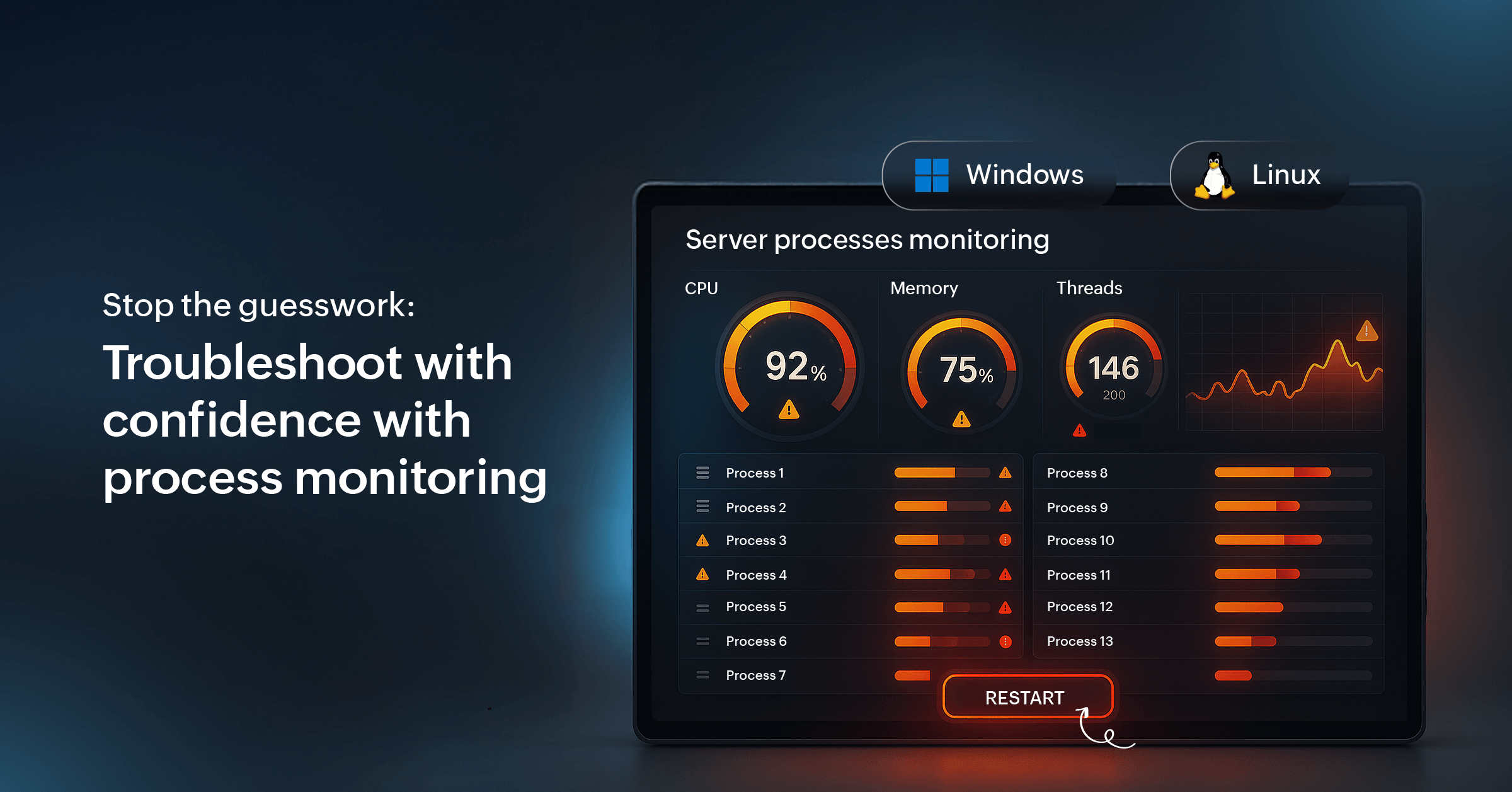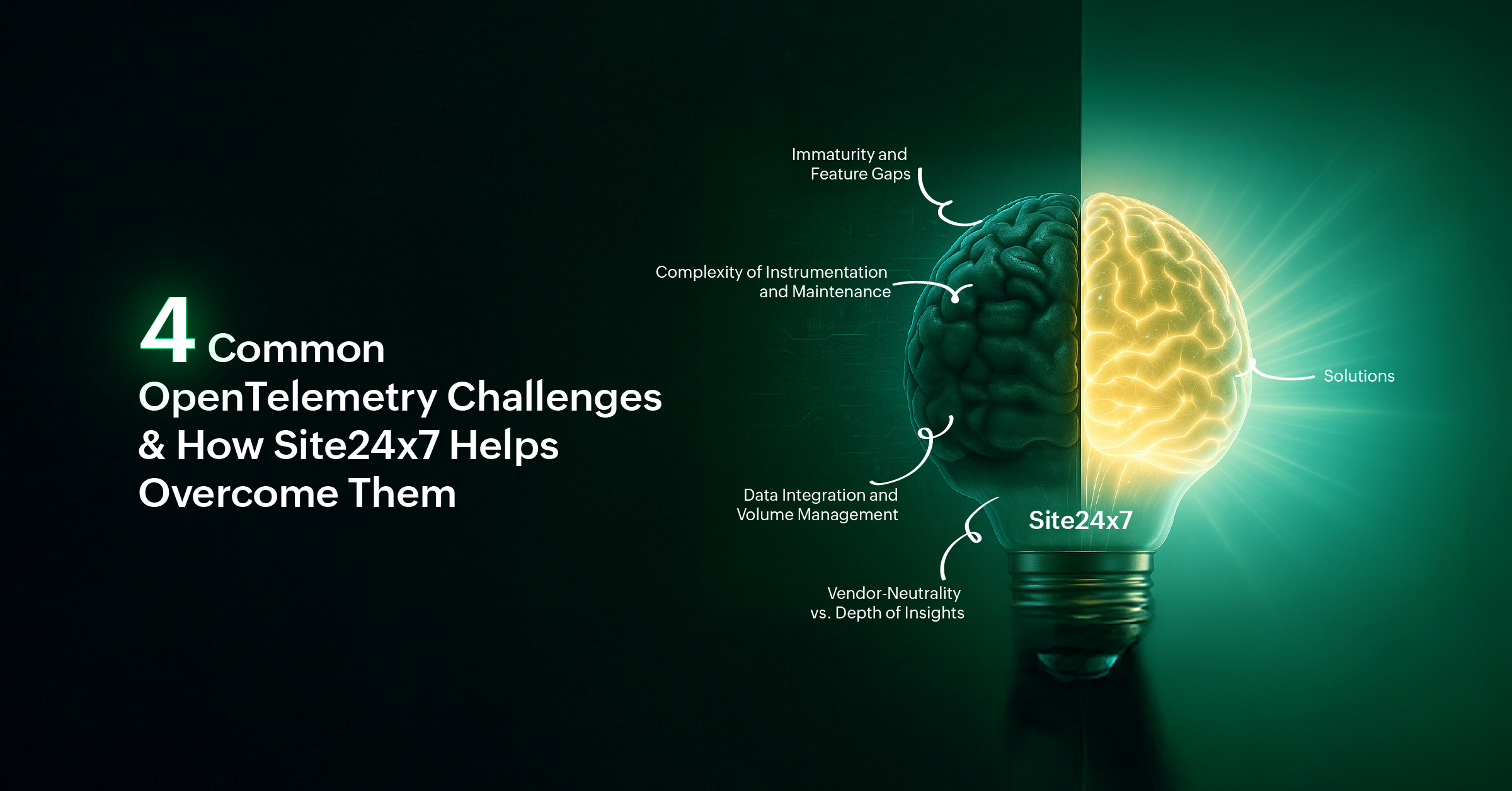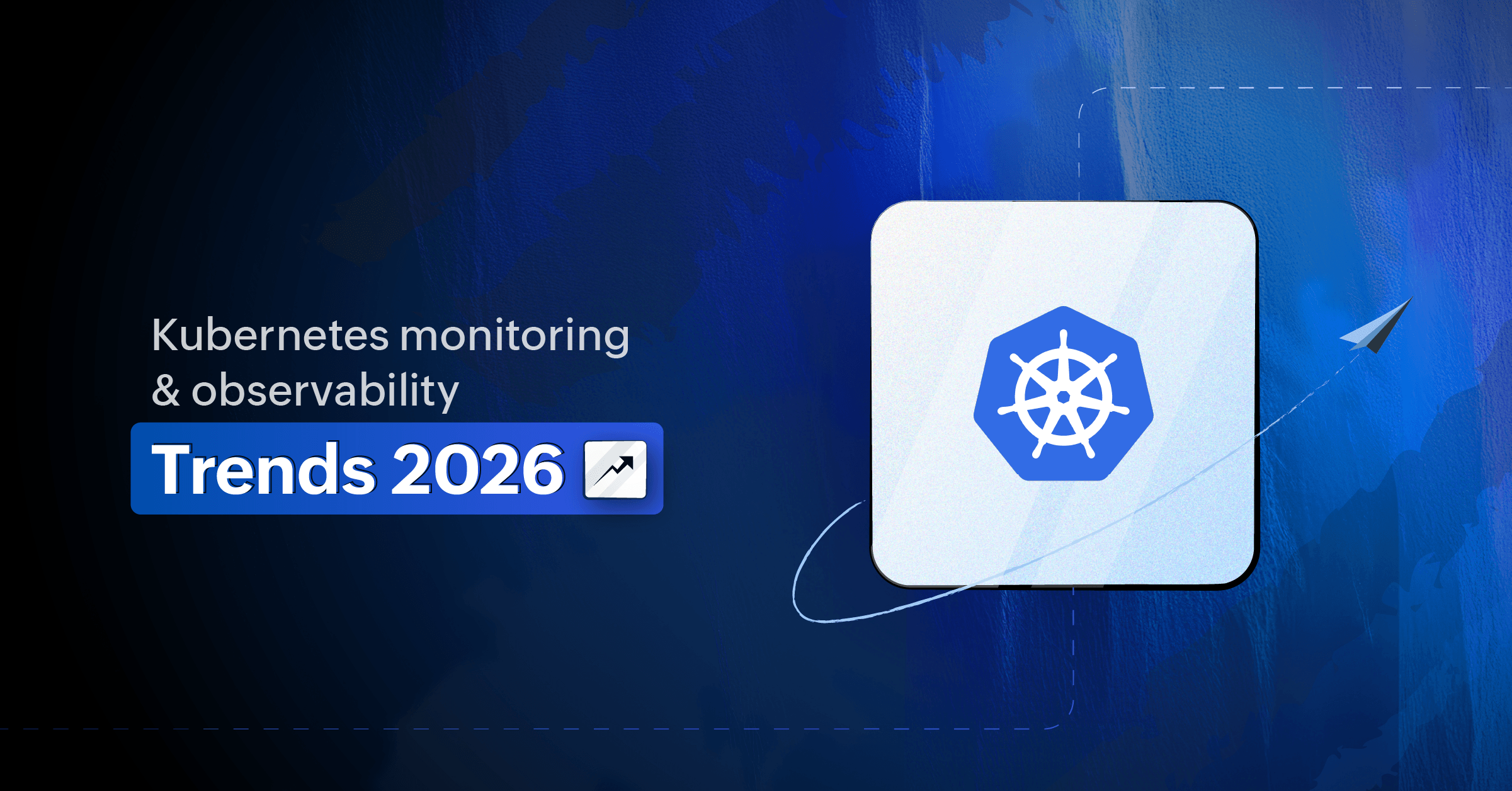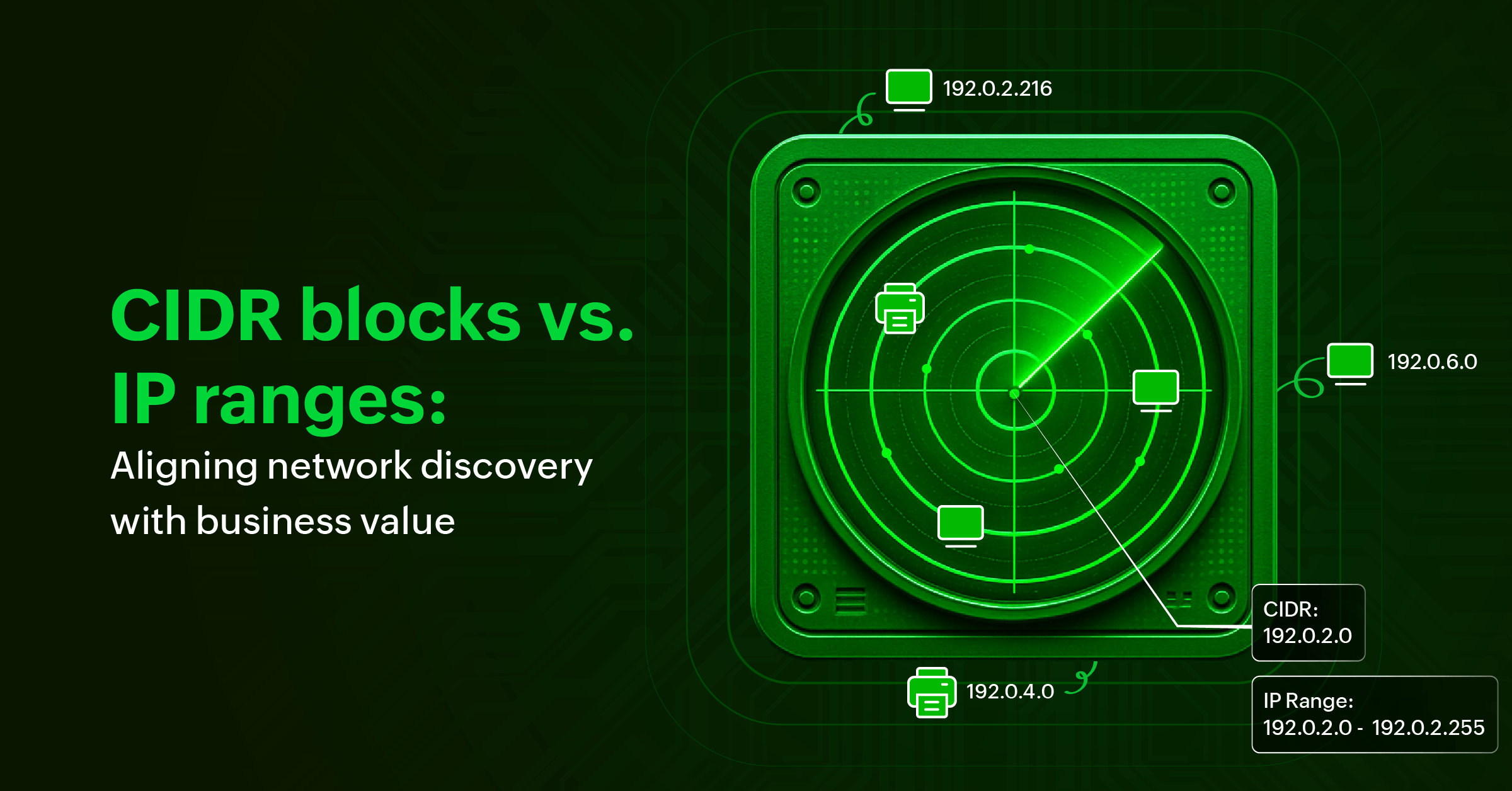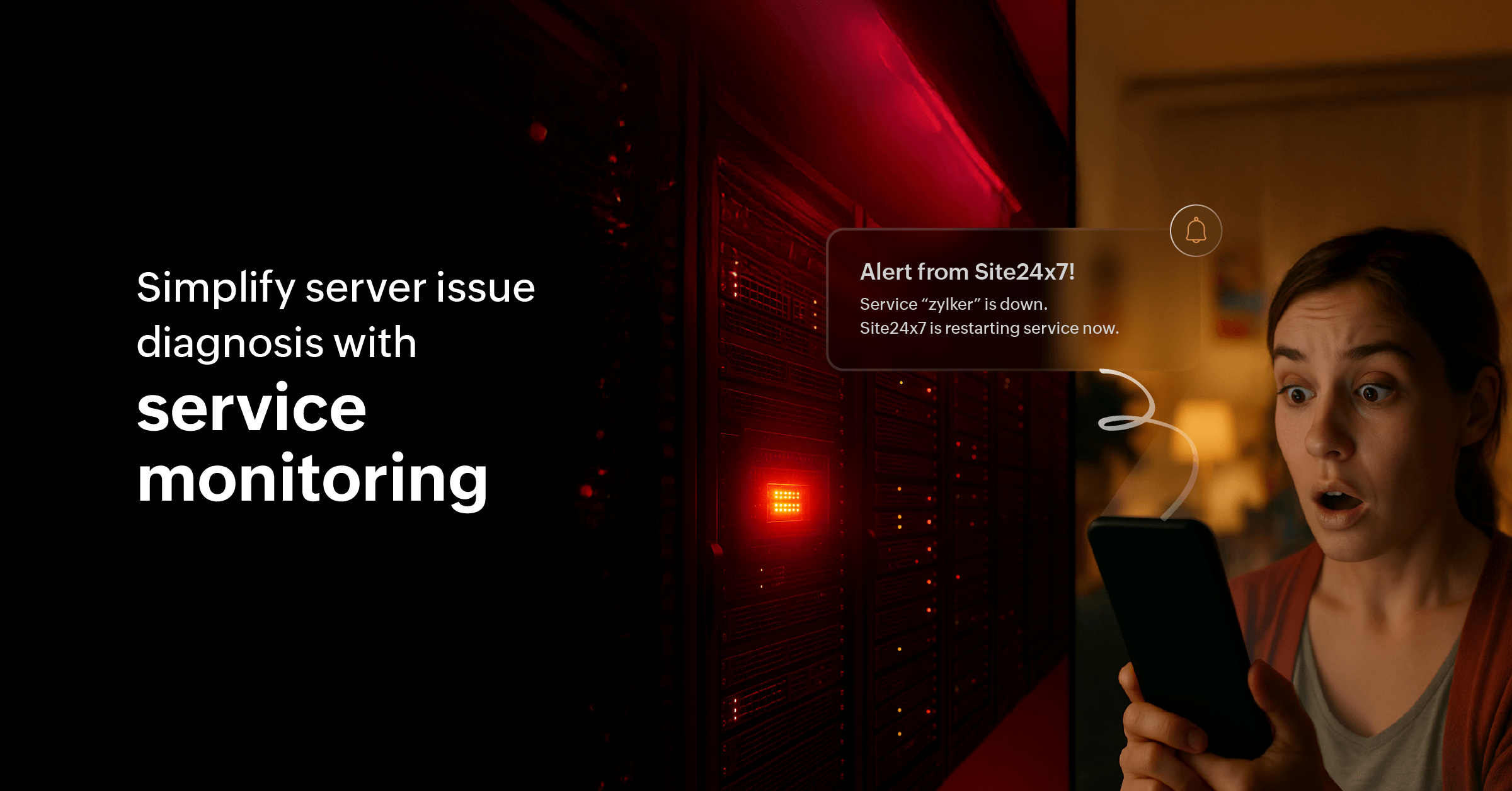How OpenTelemetry can enhance observability in distributed systems: Practical examples
Observability has become one of the fundamental elements of performance and reliability as modern applications move toward cloud-native architectures, microservices, and multi-cloud. Traditional monitoring techniques often fall short in such dynamic, distributed environments. That’s where OpenTelemetry (OTel) , an open-source observability fr...
Stop the guesswork: Troubleshoot with confidence with process monitoring
4 common OpenTelemetry challenges and how Site24x7 helps overcome them
OpenTelemetry (OTel) is transforming observability by standardizing and unifying how telemetry data such as metrics, logs, and traces are collected from distributed systems. However, while it unlocks new opportunities for monitoring and troubleshooting, adopting and operating OpenTelemetry comes with real-world challenges. Here’s what you nee...
ManageEngine recognized in the 2025 Gartner® Magic Quadrant™ for Digital Experience Monitoring
We are excited to share that ManageEngine has been recognized in the 2025 Gartner® Magic Quadrant™ for Digital Experience Monitoring (DEM). We believe this recognition reflects our ability to execute on customer needs while staying in step with the evolving demands of the market.
When we launched ManageEngine more than two decades ago, ...
How to solve authentication failures when you have an Azure setup
Kubernetes monitoring & observability trends 2026 | Future of Kubernetes observability
As we head into 2026, Kubernetes monitoring is moving toward actionable insights, cost-aware observability, and security-first approaches. This blog dives deep into what engineers, architects, and platform teams should watch for in the year ahead — with real-world examples for context.
Currently, AI and machine learning are ruling the o...
CIDR blocks vs. IP ranges: Aligning network discovery with business value
At every turn, IT leaders are required to prove the value of every technology investment. Technology business management (TBM) practices encourage connecting tech spend directly to business outcomes, demanding accurate data about what’s in your network and how it supports the organization. This is why selecting a network discovery method betw...

